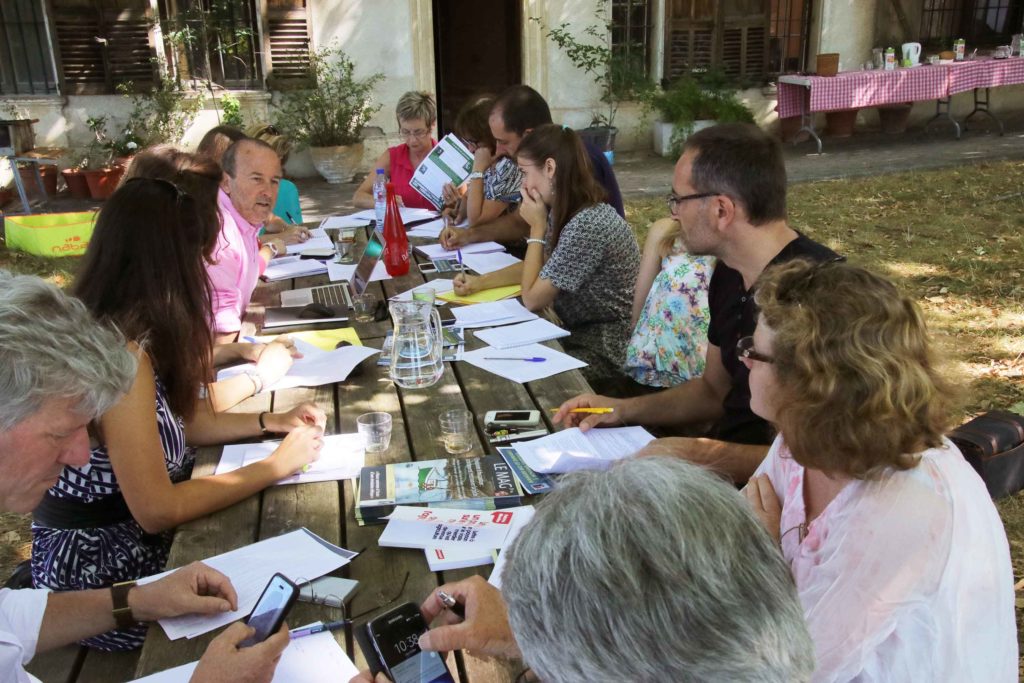In November 2012, while municipal catering became100% organic and local, Mouans-Sartoux decided to create the Sustainable Restoration Observatory with partners committed to public health and sustainable development (listed below). This unprecedented structure associates several actors and partners who meet twice a year. It aims to measure the ownership of the project, but also the effects on behaviors. Beyond school catering, Mouans-Sartoux's actions fit into the wider context of a major sustainable city project (Agenda 21) and food governance.

Each steering committee meeting allows considering future actions.
Periodically, surveys are carried out with the guests, the parents and the restoration agents, with a view to measuring changes in practices and perceptions. The last, conducted en juin 2019, showed interesting trends: 87% des parents interrogés ont confié que la politique alimentaire de la ville leur a inspiré un changement dans leurs pratiques d’achat. They also welcome the municipal initiatives, the healthy, balanced and organic meals, the tasty and varied dishes. Children also appreciate quality, good taste, healthy meals, personalized portion service and, as a surprise, they are only 8% to find that they eat too much vegetables ! Par ailleurs 13% des parents déclarent manger intégralement bio. 61% des familles disent manger « souvent » ou toujours bio. 27% des parents font leurs achats directement chez le producteur une fois par semaine et 12% vont au marché de façon hebdomadaire. 97% des parents who responded to the survey are satisfied with the city's school meals policy. Not so far from a plebiscite!
The members of the steering committee of the Observatory:
- Regional Committee for Health Education (Paca)
- Departmental Committee for Health Education (Codes 06)
- Regional Food Office (Draaf Paca)
- Childhood Office of Mouans-Sartoux
- Association Plus Bio
- Skema Business School Sophia-Antipolis
- University Côte d'Azur
– Immaterra
– Inra Paca
– Club des entrepreneurs du Pays de Grasse